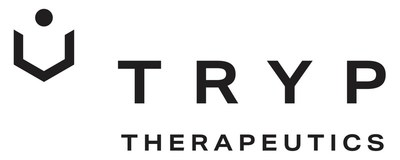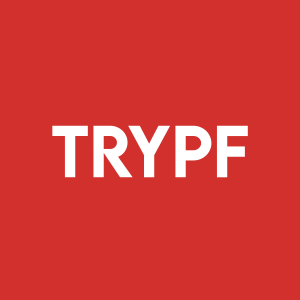TRYP THERAPEUTICS DOSES FIRST PATIENT IN PHASE II PSILOCYBIN-ASSISTED THERAPY CLINICAL TRIAL
Tryp Therapeutics has initiated its Phase II clinical trial for TRP-8802, a psilocybin-based therapy aimed at treating Binge Eating Disorder (BED). The first patient was dosed in this exploratory study, which aims to assess the safety and preliminary efficacy of psilocybin in combination with psychotherapy. BED affects over 250,000 people annually, and current treatments have shown limited effectiveness. The study collaborates with the University of Florida and includes up to 10 patients. Strong recruitment interest has been noted, marking a significant milestone in psilocybin-assisted therapy.
- Phase II clinical trial for TRP-8802 underway, first patient dosed.
- Strong interest in trial recruitment.
- Potential to address unmet medical need for BED affecting over 250,000 annually.
- None.
Phase II trial to determine efficacy of psilocybin in combination with psychotherapy for potential treatment of Binge Eating Disorder
SAN DIEGO, April 28, 2022 /PRNewswire/ -- Tryp Therapeutics, Inc. (CSE: TRYP) (OTCQB: TRYPF) ("Tryp" or the "Company"), a clinical-stage biotechnology company focused on developing psilocybin-based compounds for diseases with unmet medical needs, announced today that the first patient has been dosed in the Company's Phase II clinical trial for its lead candidate, TRP-8802. In combination with psychotherapy, TRP-8802 is intended to serve as a potential treatment of Binge Eating Disorder ("BED").
"The world's first FDA regulated clinical trial for psilocybin-assisted therapy targeting BED is underway, further advancing our clinical milestones," said Dr. Jim Gilligan, Chief Scientific Officer, and interim CEO of Tryp Therapeutics. "This is a key study for our psilocybin-assisted therapy portfolio as we assess the effectiveness of TRP-8802 (oral psilocybin) to treat patients with BED. There has been strong interest in trial recruitment to date. We believe that psilocybin-assisted therapy has the potential to offer a new therapeutic treatment for BED, a disorder that devastates the lives of over 250,000 people each year."
The first of up to 10 patients with BED, has now been dosed in this open-label, exploratory Phase II study of TRP-8802 in combination with psychotherapy. The study will investigate the safety and preliminary efficacy of psilocybin-assisted therapy among patients with BED in collaboration with the University of Florida. The open-label study affords Tryp the ability to monitor results on an ongoing basis.
Tryp's BED trial will utilize psychotherapy protocols developed in conjunction with Fluence and their dedicated team of well-respected researchers and clinicians who possess extensive psychedelic trials experience and psychotherapeutic training expertise to support healthcare professionals.
"We are thrilled to support Tryp's BED program and be part of this historical event," said Ingmar Gorman, Ph.D., Co-Founder of Fluence. He added, "Fluence is excited to assist Tryp in bringing innovative, psychedelic-based treatments to people struggling with overeating that will have a positive and lasting patient impact."
About Binge Eating Disorder (BED)
- BED is characterized by recurring episodes of eating large quantities of food and feeling unable to stop.
- Nearly
30% of people seeking weight loss treatments show signs of BED. - Up to
3.5% of females and2.0% of males will develop BED at some point in their lives; current drug treatments to date have demonstrated limited effectiveness.
About TRP-8802
- TRP-8802 is a non-proprietary 25 mg oral capsule of synthetic psilocybin.
- Using TRP-8802 for Phase 2a studies allows Tryp to quickly initiate clinical trials to generate initial data while they concurrently develop an improved, proprietary formulation and delivery system (TRP-8803) for psilocybin-related molecules for target indications like BED.
About Tryp Therapeutics
Tryp Therapeutics is a clinical-stage biotechnology company focused on developing psilocybin-related molecules, including TRP-8803, for the treatment of diseases with unmet medical needs through accelerated regulatory pathways. Tryp's Psilocybin-For-Neuropsychiatric Disorders (PFN™) program is focused on the development of synthetic psilocybin-related molecules as a new class of drug for the treatment of binge eating, chronic pain, and other indications. The Company has begun enrolling patients in its Phase II trial for the treatment of binge eating disorder at the University of Florida and recently announced an upcoming Phase IIa clinical trial with the University of Michigan to evaluate TRP-8802 for fibromyalgia. TRP-8803 is a proprietary psilocybin-based product that uses a novel formulation and route of administration to potentially improve efficacy, safety and the patient experience. For more information, please visit www.tryptherapeutics.com.
About Fluence
Fluence is an expertise-driven educational platform that provides professional training in psychedelic therapy and psychedelic integration for psychiatrists, psychotherapists, social workers, and other healthcare practitioners. Fluence's mission is to give healthcare providers the clinical skills and knowledge to provide effective, compassionate, evidence-based psychedelic therapy and integration services to patients through dynamic, interactive online and in-person trainings. www.fluencetraining.com
Investor Relations:
Jim Gilligan, Interim CEO
Tryp Therapeutics
jgilligan@tryptherapeutics.com
Media Relations:
Francesca DeMauro
KCSA Strategic Communications
TRYP@KCSA.com
Forward-Looking Information
Certain information in this news release constitutes forward-looking information. In some cases, but not necessarily in all cases, forward-looking information can be identified by the use of forward-looking terminology such as "plans," "targets," "expects" or "does not expect," "is expected," "an opportunity exists," "is positioned," "estimates," "intends," "assumes," "anticipates" or "does not anticipate" or "believes," or variations of such words and phrases or state that certain actions, events or results "may," "could," "would," "might," "will" or "will be taken," "occur" or "be achieved." In addition, any statements that refer to expectations, projections or other characterizations of future events or circumstances contain forward-looking information. Statements containing forward-looking information are not historical facts but instead represent management's expectations, estimates and projections regarding future events.
Forward-looking information is necessarily based on a number of opinions, assumptions and estimates that, while considered reasonable by Tryp as of the date of this news release, are subject to known and unknown risks, uncertainties, assumptions and other factors that may cause the actual results, level of activity, performance or achievements to be materially different from those expressed or implied by such forward-looking information, including but not limited to the factors described in greater detail in the "Risk Factors" section of Tryp's final prospectus available at www.sedar.com. These factors are not intended to represent a complete list of the factors that could affect Tryp; however, these factors should be considered carefully. There can be no assurance that such estimates and assumptions will prove to be correct. The forward-looking statements contained in this news release are made as of the date of this news release, and Tryp expressly disclaims any obligation to update or alter statements containing any forward-looking information, or the factors or assumptions underlying them, whether as a result of new information, future events or otherwise, except as required by law.
NEITHER THE CANADIAN SECURITIES EXCHANGE NOR ITS REGULATION SERVICES PROVIDER HAS REVIEWED OR ACCEPTED RESPONSIBILITY FOR THE ADEQUACY OR ACCURACY OF THIS RELEASE.
![]() View original content to download multimedia:https://www.prnewswire.com/news-releases/tryp-therapeutics-doses-first-patient-in-phase-ii-psilocybin-assisted-therapy-clinical-trial-301534766.html
View original content to download multimedia:https://www.prnewswire.com/news-releases/tryp-therapeutics-doses-first-patient-in-phase-ii-psilocybin-assisted-therapy-clinical-trial-301534766.html
SOURCE Tryp Therapeutics
FAQ
What is the purpose of Tryp Therapeutics' Phase II trial for TRP-8802?
When was the first patient dosed in the TRYPF clinical trial?
How many patients will be involved in the TRYPF Phase II trial?








